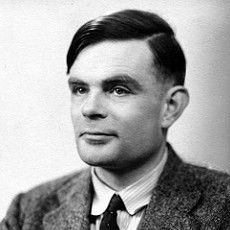
High technology is becoming ubiquitous in daily life, whether it's Alexa or the algorithms that Google uses to answer your questions and market to you. We keep trying to make our machines smarter, but at what point do they slip the leash and think for themselves? Three novels and one book of essays explore the possibilities.
Adda and Iridian arrive on Barbary Station hoping to pay off their student debts with a little piracy in R.E. Stearns' rollicking space opera. Things are complicated by an artificial intelligence that may have achieved consciousness and is determined to kill off the pirates and anyone else trying to leave the station. It's up to the newcomers to kill off or reprogram the AI and save the day. Heart-racing action and solid world-building make this book worth your time.
Isaac Asimov's seminal I, Robot is a set of interconnected stories chronicling the advancement of robots into the near future. As they develop their own consciousness, robots are programed with what we now call "asimovs," proscriptions against allowing harm to come to humans through robotic action or non-action. Deeply human and philosophical, Asimov is nevertheless able to keep things moving.
In Martha Wells' All Systems Red, Murderbot, the AI narrator, confesses to being a complete and utter failure at mercilessly killing people. Part of this is because once humans are gone, there will be no more serial media to watch. Hilariously snarky, this action-packed tale manages to keep humans to the side while Murderbot engages with its own, long-subsumed humanity.
Of course, there's the question of how we get from here to there. What to Think About Machines That Think is a collection of brief essays on the present and future of artificial intelligence. Turns out, we've been debating the effects of AI since Alan Turing invented the term in the middle of the last century. In this imminently readable book, essayists discuss all the different topics, such as whether we will integrate with machines or whether we will be left behind by computers with superior cognitive abilities.
Got more musings on the way humans and machines relate? Tell us about them in the comments.


Add a comment to: Almost Human: Books About Artificial Intelligence